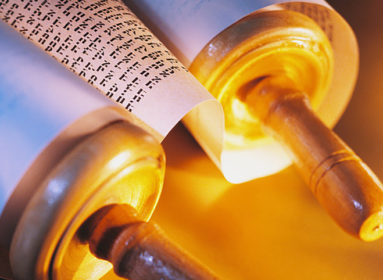By Rabbi Shaya Gopin ~
Are the humble in denial? There is a story of a fellow looking to marry, who had a problem with every girl the matchmakers suggested. He felt that he was just too good for whomever they proposed for him. The matchmakers felt that the only way to help him would be to send him to the “Academy of Humility.”
Being the talented fellow that he was, he did very well. In six months he graduated and received a degree in “humility.”
Returning home the matchmaker proposed a match for him. He said “Didn’t you already propose this girl for me and I already told you I thought it was not appropriate for me?!”
The matchmaker responded “Yes, but I figured that now that you graduated the “Academy of Humility” you would now find this girl appropriate.”
The fellow said “I don’t understand: if before I went, being so smart and talented, this was inappropriate for me, now that I’m smart, talented and humble she is surely
not good enough for me!”
How do we define humility?
Does humility mean that one truly feels themselves of lesser value than others?
The Mishna tells us “one should be exceedingly humble of spirit before all men” (Ethics of our Fathers 4:4), meaning even someone of an extremely inferior state than you.
In order for people to grow they must be in touch with themselves and know their flaws, deficiencies, qualities and virtues.
How can a person reach such a feeling of humility, while still being aware of his or her own qualities and accomplishments?
In our parsha we find an amazing statement about Moshe.It says, “Now this man Moses was exceedingly humble, more so than any person on the face of the earth.” (Num. 12:3)
How was Moshe able to humble himself “more so than any person on the face of the earth?”
Moshe brought ten plagues on Egypt and split the sea. Moshe is called the greatest prophet of all times, who spoke to God face-to-face and gave us the Torah from G-d.
Was Moshe not aware of his unique qualities and accomplishments?!
Rather Moshe had a perspective that enabled him to balance both — to know his greatness and to be humbled before all.
Moshe recognized that all of his qualities were a gift from God. He realized that his refined character, tremendous intellectual capacity, his family and spiritual sensitivity were all endowed to him by God.
Moshe realized that all his life accomplishments were due to the circumstances and opportunities that God had placed him in.
When Moshe saw a person, even one of a greatly inferior level, he made a simple calculation: if this person would have been given my qualities, opportunities and experiences, he may have taken them to a much higher level and accomplished much more.
This perspective towards others enables us to be aware of what qualities we possess, without allowing our ego and pride to get in the way. In addition, this brings us to a greater appreciation of the other person. When we realize how the other may not have had the opportunities, or may not have been born with certain character traits that would have brought him to a better state, we can then better appreciate the accomplishments that they have made and good qualities that are there, without judging them for their deficiencies.
For who knows, had I been in their situation how much better would I have done?
Rabbi Shneur Zalman, the founder of the Chabad Movement, comments on the words “More so than any person,” that Moshe felt particularly humbled by the final generation that will precede the coming of Moshiach (Messiah).
What did Moshe see in this generation over all the previous ones?
The answer is, the quality ones sees in another, that humbles one before a person seemingly inferior to themselves, is not necessarily from seeing his or her talents or great accomplishments. Rather seeing that person’s sense of perseverance and commitment. Then you can calculate, that if that person had better opportunities he or she could do much more.
This is what Moshe saw in our generation.
We live in a time when it is spiritually dark. We don’t have the same level of understanding as previous generations. Neither can we compare our level of inspiration and feeling of closeness to God to the other generations.
A person can live totally oblivious to God’s presence, Torah and mitzvot.
Although we’re not living in a time when we are oppressed for practicing Judaism, nevertheless it’s very easy ignore the fact that one is a Jew. We don’t have external elements reminding us about it as in the past.
Nevertheless, when a Jew decides he or she wants to do a mitzvah, this perseverance is an expression of total dedication and desire to fulfill the will of God.
This is what impressed Moshe.
In the merit of our dedication to fulfill the will of God, regardless of our level of inspiration and understanding, may we merit to be inspired by the revelation of “the glory of Hashem” (Isaia 40:5) with the coming of Moshiach very soon.
Rabbi Shaya Gopin is spiritual leader of Young Israel of Hartford in West Hartford.








 Southern New England Jewish Ledger
Southern New England Jewish Ledger










